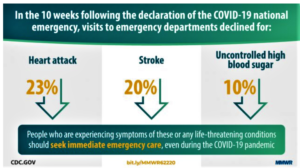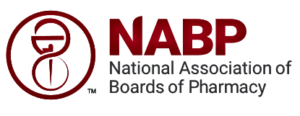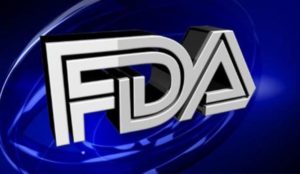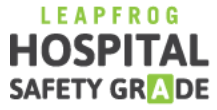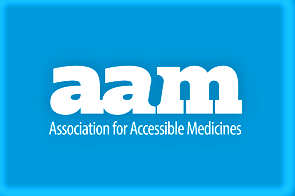- U.S. emergency visits due to heart attacks fell during early days of COVID-19 (reuters.com)Potential Indirect Effects of the COVID-19 Pandemic on Use of Emergency Departments for Acute Life-Threatening Conditions — United States, January–May 2020 (cdc.gov)
Fewer Americans were admitted to emergency departments with life-threatening conditions such as heart attacks during the initial months of the COVID-19 pandemic,..The study suggests that patients may be delaying or avoiding seeking care because of fear of COVID-19, researchers from the U.S. Centers for Disease Control and Prevention said...study...showed that the number of deaths in New York City from causes other than COVID-19 rose by more than 5,000 people above the seasonal norm during the first two months of the pandemic...Visits to the emergency department because of heart attacks fell 23%, ten weeks after the pandemic was declared a national emergency, compared with ten weeks before the emergency declaration...READ MORE
- NABP: Illegal online pharmacies exploit vulnerable consumers during the COVID-19 pandemic (chaindrugreview.com)
The National Association of Boards of Pharmacy released the May 2020 Rogue Rx Activity Report, Rogue Online Pharmacies in the Time of Pandemic: Capitalizing on Misinformation and Fear. The report highlights how illegal online pharmacies use COVID-19 to expand operations and prey on consumer fears...NABP has identified dozens of rogue online pharmacies claiming to sell prescription drugs marketed for COVID-19 treatment. Drugs such as chloroquine, hydroxychloroquine, lopinavir, and ritonavir are being sold online after they gained media attention; however, these are unproven treatments for COVID-19 and are dangerous when taken without proper medical supervision...READ MORE
Attempting to capitalize on the pandemic, illegal online pharmacies are:
-adding coronavirus-related images to preexisting websites,
-purchasing domain names that include COVID-19 words and phrases,
-registering domain names with fraudulent “safe haven” registrars, and
-creating new website facades linking to non-coronavirus-related stores. - Rule on Reporting Clinical Trial Results Often Violated (ptcommunity.com)White males overrepresented in clinical trials for first-time cancer treatment (outsourcing-pharma.com)
Less than half of clinical trial results are reported promptly on the U.S. trial registry ClinicalTrials.gov despite federal requirements, according to a recent study published in The Lancet...U.S. regulations that took effect in January 2017 require clinical trials to report results on ClinicalTrials.gov within one year of completion. But just 41% of trials followed the rules, and one in three trials remains unreported. Trials with nonindustry sponsors (such as universities, hospitals, and governments) are far more likely to breach the rules than trials sponsored by industry—with trials sponsored by the U.S. government least likely to post results on time...READ MORE
- FDA task force offers suggestions to reduce drug shortages (fiercepharma.com)Report | Drug Shortages: Root Causes and Potential Solutions (fda.gov)
The FDA Tuesday dropped its report Drug Shortages: Root Causes and Potential Solutions with the explanation that includes suggestions that might help relieve chronic shortages but acknowledging that there has never really been any “private- or public-sector effort to collect and analyze comprehensive information to characterize shortages, quantify their effects, or closely observe the contracting practices that may be driving them.”...While there are many reasons for drug shortages, it had three recommendations to get at the root causes...READ MORE
- Canada Revenue Agency opens up snitch line to information about federal COVID-19 aid program fraud (nationalpost.com)
The Canada Revenue Agency is opening up its snitch line to tips about fraud in COVID-19 federal aid programs amid reports of illicit applications and double dipping...Canada Revenue Agency says its National Leads Program — a.k.a. its snitch line — is now accepting information regarding the Canada Emergency Response Benefit (CERB), the Canada Emergency Student Benefit (CESB), and the Canada Emergency Wage Subsidy (CEWS)...“If you suspect a potential misuse of the COVID-19 emergency benefits and programs, the National Leads Centre is currently accepting leads on these programs,”...the agency says it’s looking for information regarding people who are receiving either CERB or CESB who are ineligible, or businesses or charities that are “misusing” the wage subsidy program...READ MORE
- NACDS COVID-19 Report: Top Reopening Priorities and How Pharmacies Can Help (drugtopics.com)Pharmacies: A Vital Partner in Reopening America (nacds.org)
Rapid coronavirus disease 2 (COVID-19) testing, contract tracing, and preparing for vaccines and treatments are the 3 key priorities as the United States reopens, NACDS said in a new report...Pharmacies: A Vital Partner in Reopening America...The organization also urged that additional steps should be taken to ensure that pharmacists and pharmacies are fully utilized to support this national effort...READ MORE
- Nevada’s 2019 Hospital Safety Rankings Are Out
Leapfrog’s highest “A” rated hospitals for 2019 has remained unchanged from last year. These are Henderson Hospital, Mountainview Hospital, Northern Nevada Medical Center, Renown South Meadows Medical Center, and St. Mary's Regional Medical Center of Reno.
The Leapfrog Group hospital grading system is based on Centers for Medicare & Medicaid Services data collection and represents a single metric that evaluates a hospital’s overall safety performance. The nonprofit is dedicated to transparency and has created the Leapfrog Hospital Safety Grade as a quality standard for comparing health care institutions.
The “B” team consists of North Vista Hospital, Valley Hospital Medical Center, St. Rose Dominican Hospitals - Siena Campus, St. Rose Dominican Hospitals - San Martin Campus, and Renown Regional Medical Center.
The good news is two of these hospitals have shown a marked safety improvement by moving up from a “C” rating to a “B” rating; these are: Valley Hospital Medical Center, and Renown Regional Medical Center.
These hospitals are to be applauded for consistently maintaining high standards and striving to improve patient care.
The bad news is the University Medical Center of Southern Nevada continues to struggle with its’ “D” rating.
By Chase
12.30.2019
- Delays getting records means crucial virus questions go unanswered (reviewjournal.com)
Nevada Gov. Steve Sisolak has touted open government as a crucial aspect to the state’s response to the COVID-19 outbreak. “You deserve transparency,” he proclaimed during an April 8 news conference, a statement reflecting the Nevada Public Records Act’s promise of open access to most government documents...But records vital to evaluating how Sisolak’s administration and state agencies have navigated the unprecedented emergency have proved difficult to obtain...Even a simple request for daily reports on hospital capacity made in early April, which would have spanned only a few pages at the time, was met with a response from a senior policy analyst in Sisolak’s office to wait “eight to 10 weeks” to receive the record...Among the requested documents that state agencies have delayed in producing or denied access to are the following:
■ Emergency management plans related to disease outbreaks or widespread health emergencies. Officials took more than 40 days to deny the request.
■ Documents tracking testing of prison inmates and staff for COVID-19. Denied by officials after 13 days.
■ Written communications among top prison officials about COVID-19 testing. Officials said they would respond “in the next 45 days.”
■ Records related to Nevada’s government stockpile of personal protective gear for medical workers. Officials said it will take “eight to ten weeks or longer” to compile the documents....READ MORE
- University of Nevada, Reno School of Medicine report addresses statewide physician shortage, challenges and opportunities for growth (med.unr.edu)
A physician shortage continues to be a problem in Nevada and is hindering patient care access hardest in rural regions, according to a recent report focusing on health care workforce trends in the Silver State...According to the latest data published in the report, "Physician Workforce in Nevada: A Chartbook - January 2020," demand for physicians in Nevada continues to exceed the current supply. While the number of licensed physicians in the state has increased over a decade, Nevada ranks 45th for active physicians per 100,000 population, 48th for primary care physicians per 100,000 population and 50th for general surgeons per 100,000 population...READ MORE
- Generic Drug Pricing Trends (drugtopics.com)
According to the Association for Accessible Medicines 2019 report with data from IQVIA, generic drug savings totaled $293 billion in 2018, which resulted in a 10-year savings of almost $2 trillion. Other key findings include that 4 billion generic prescriptions were filled across the U.S. in 2018, which is 90% of all dispensed prescriptions. Additionally, 95% of generic prescriptions were filled at $20 or less with an average copay of $5.63 whereas the average brand copay is $40.65. In 2017, patients who were prescribed more expensive brand products were 2-3 times more likely to leave the pharmacy without their prescriptions...There were 68,353 pharmacy stores that provided cash prices for the study; results revealed that independent pharmacies and small chains had the highest cash prices for generic drugs, while big box pharmacies had the lowest prices compared with large chains...READ MORE

